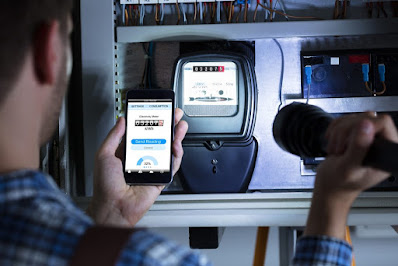When Should You Replace Your Old Heating Equipment?

Does your building have old, run-down heating equipment? Now that summer is here and you’re most likely not using your heating system, it’s the perfect time to upgrade your HVAC unit and replace it with something more energy efficient. While replacing your building’s heating equipment can sound like a daunting task, the help of a trusted technician will have your new HVAC system installed in no time.
It’s time to replace your heating system, if you’re…
- Letting your HVAC system run at full blast, 24/7. If your heating equipment is running at full power and it still isn’t getting warm enough, your unit either needs repairing or replacing.
- Spending too much money on heating costs. One great reason to upgrade is newer HVAC units are much more energy efficient, providing better heating at lower costs.
- Worried about your indoor air quality. So many contaminants build up in your HVAC unit over the years: dust, mold, dirt, bacteria, and other debris. All of which can greatly affect the indoor air quality in your building.
- Constantly paying for repairs. If your heating equipment is breaking down several times a year, requiring costly and complicated repairs, it may be time to upgrade your HVAC unit.
- Dealing with refrigerant leaks and cracked air ducts. It’s normal for heating equipment to undergo stress and strain over the years. However, when serious damage like leaks and cracks occur, it’s usually recommended to replace the whole system.
- Working with thermostats that don’t match the air temperature. Older HVAC units sometimes strain to work properly while sending false signals to your thermostat.
If you’re unsure about the condition of your current heating equipment, we recommend contacting a trusted HVAC technician who can conduct an inspection and give you an accurate assessment. They can also recommend newer, more energy efficient HVAC systems if you decide yours needs replacing.
How often to replace an HVAC system
Depending on where you live and how often you use your HVAC system, we recommend replacing it every 12-15 years. All HVAC units require regular maintenance in order to keep them clean, functioning, and in top condition, but there does come a time when constant repairs and repeated break-downs mean your system simply needs to be replaced.
Heating equipment is extremely important in commercial spaces. Whether it’s an office building, a college lecture hall, or a shopping mall, people expect a comfortable atmosphere with clean indoor air – especially since COVID-19 hit. As we mentioned above, this is the ideal time of year to upgrade your HVAC unit since you’ll have several months to test it and ensure it works properly before the cold weather is back again.
What to do with your old HVAC equipment
Once your heating equipment has been replaced, you may be wondering what to do with your old HVAC unit. It’s important to note that it’s illegal to simply throw your old HVAC system in the trash. You must dispose of it properly, and you can do this by contacting your local recycling center, hazardous waste disposal facility, or asking your HVAC technician what they recommend.
HVAC technicians are often licensed to remove your old heating equipment, and this is the preferable option for most commercial building owners. When speaking with potential technicians, be sure to ask about removal and disposal, because it will save you time and ensure you aren’t fined for illegally disposing of materials.
For more information about energy efficient HVAC units, please contact our team at Tri-Tech Energy today. We’re happy to help you replace and dispose of your old heating equipment.
Original content is posted on https://www.tritechenergy.com/blog/commercial-hvac/when-should-you-replace-your-old-heating-equipment/

Comments
Post a Comment